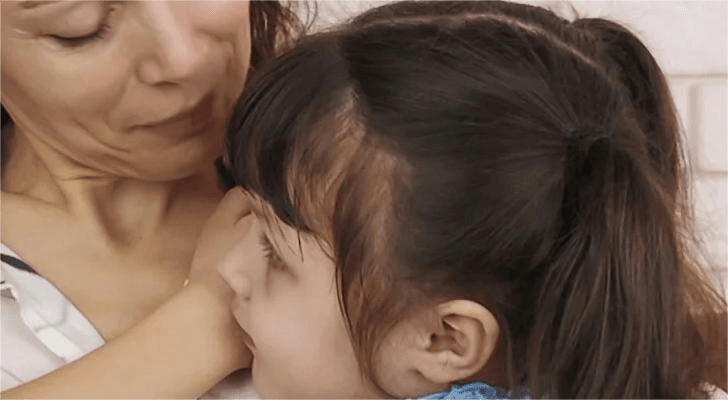Child Throwing a Tantrum? This Guide Will Help You Handle Every Situation Easily
It's quite normal for children to have tantrums as they grow. They might throw a fit because they don't have the words to express their big feelings, or perhaps they're feeling frustrated or unwell.
Introduction
When your little one is upset, it's important to stay calm and show them you understand. As a parent, you're their first role model. By staying calm, you're teaching them how to manage their emotions, making them feel safe and loved, and strengthening your bond.
Remember, tantrums are a natural part of growing up. By providing a supportive environment, you're helping your child learn valuable skills for life.

What should parents do when their child throws a tantrum due to frustration?
Here are some effective ways to handle children's tantrums caused by frustration:
1.Remain calm and avoid raising your voice or becoming angry.
2.Acknowledge your child's emotions and reassure them that you understand they're feeling frustrated or upset.
3.Remove your child from the stressful situation and take them to a quieter place.
4.Offer your child choices to help them feel more in control. For instance, "Would you prefer a hug or a glass of water?"
5.Teach your child some coping mechanisms, like deep breathing or counting, to help them relax.
How can parents help their children manage their emotions and avoid tantrums?
1.Keep an eye on your child to see what usually frustrates them.
2.Make sure the things you ask your child to do are right for their age and they can actually do them.
3.Teach your child how to deal with tough stuff and not give up.
4.Show your child how to be patient by waiting for things yourself.
5.Get your child moving with activities like running or playing outside to burn off extra energy.
Here are some examples:
Situation: Your child is frustrated because they can't build a tower as tall as their friend's.
Response: "I see you're working hard to build a tall tower. It can be frustrating when things don't go as planned. Let's take a break and try again later."
Prevention: Practice building towers together and set realistic goals for your child.
Situation: Your child is upset because they can't open a package.
*Response: "It looks like you're having trouble opening that. Let's try using a different tool."
Prevention: Teach your child how to use simple tools and solve problems independently.

What should parents do when their child throws a tantrum due to exhaustion?
1.Tell your kid you get it, they're really tired. You could say, "You sound really sleepy."
2.Find a quiet, dark spot to help them chill out.
3.Give them a hug, a cozy blanket, or their favorite stuffed toy.
4.Turn down the lights and keep it quiet to help them relax.
5.Stick to a bedtime routine to help them get better sleep.
What can we do to stop kids from throwing fits when they're tired?
1.Ensure your child gets enough quality sleep each night. Aim for a consistent bedtime and wake-up time.
2.Limit screen time, noisy activities, and exciting events before bed. These can stimulate the brain and make it harder to fall asleep.
3.Establish a calming bedtime routine. Include relaxing activities like reading or taking a warm bath.
4.Consult a pediatrician if your child has trouble sleeping. They can rule out any underlying medical conditions.
5.Limit caffeine intake, especially in the afternoon and evening. This includes soda, chocolate, and energy drinks.
Here are some examples:
Situation: Your child is having a tantrum during a long car ride.
Response: "I know you're tired. Let's take a break, stretch our legs, and get some fresh air."
Prevention: Schedule breaks during long car rides for your child to move around and rest.

What can parents do when their kids throw a fit just to get noticed?
If your child is throwing a tantrum solely for attention, try to ignore it. Avoid giving in to their demands or threats.
1.Clearly communicate to your child that tantrums are unacceptable and set firm limits.
2.Offer lots of praise and attention when your child is behaving appropriately.
3.Try to redirect your child's attention with a different activity or offer a choice to help them calm down.
4.Show your child how to express their needs in a calm and polite manner.
How can we prevent children from throwing tantrums to get attention?
1.Offer consistent attention to make your child feel loved and valued, regardless of their behavior.
2.Set clear rules and limits for behavior, and enforce consequences when rules are broken.
3.Teach your child important social skills, such as sharing, taking turns, and expressing their feelings healthily.
4.Be mindful of excessive praise. Positive reinforcement is valuable, but too much praise can sometimes encourage attention-seeking.
Here are some examples:
Situation: Your child is throwing a tantrum because they want a toy you won't let them have.
Response: "I understand you want the toy, but having a tantrum isn't going to help. Let's talk about it when you've calmed down."
Prevention: Set clear rules about toys and enforce them consistently. Praise your child when they behave appropriately.
Situation: Your child is throwing a tantrum because they feel you're not paying attention to them.
Response: "I'm busy right now, but we can play together in a few minutes. When I'm finished with this, let's find a quiet activity to do together."
Prevention: Schedule regular one-on-one time with your child to show them you care.

Conclusion
By remaining patient, understanding, and consistent, parents can create a supportive environment that helps children learn to manage their emotions effectively. Remember, tantrums are a normal part of childhood development. Through patience and guidance, parents can help their children develop healthy coping mechanisms and build resilience.
